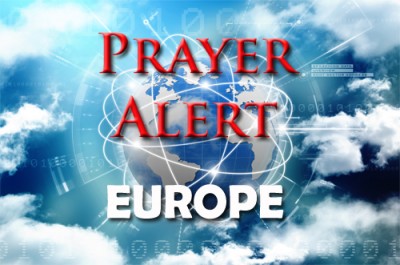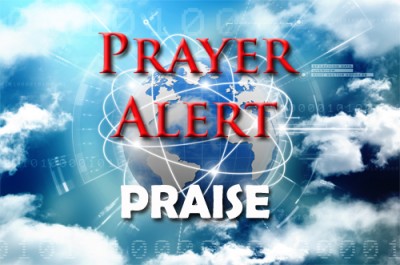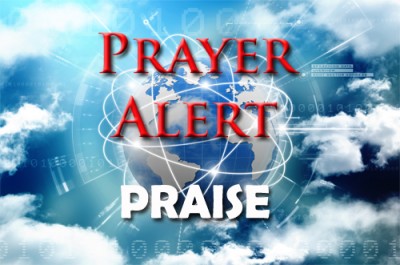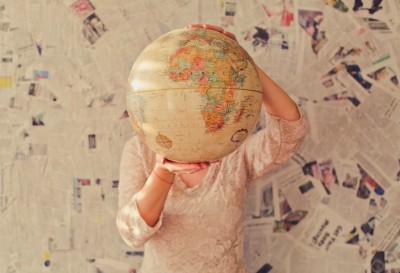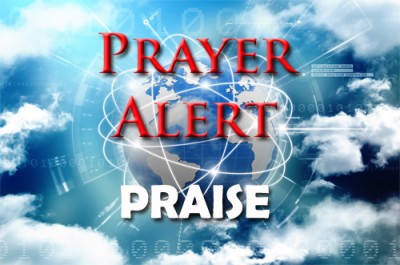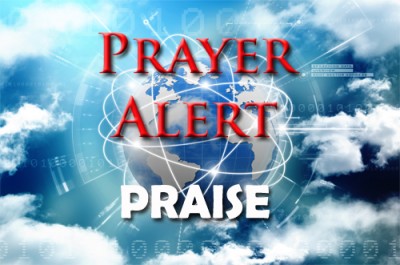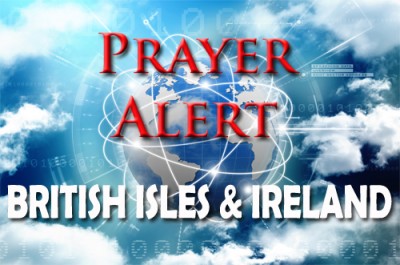Council of Europe (CoE)
24 Nov 2017If we want to pray for all in authority over Europe we should look at the CoE. It is an institution of 47 nations separate from the EU with headquarters in Strasbourg, France. It’s a parliamentary assembly of delegates from national parliaments and has its roots in being one of the first attempting to reconstruct Europe after WWII. It has the oversight of the European Court of Human Rights in Strasbourg and through the work of their Parliamentary Assembly of the Council of Europe (PACE) it oversees subjects as diverse as non-discrimination, protection of children's rights, election observation and upholding freedom of expression. Our nation’s delegates to the PACE can be found at http://www.assembly.coe.int/nw/xml/AssemblyList/AL-XML2HTML-EN.asp?lang=en&XmlID=NationalDelegation-uk
60,000 'Boxes of Joy' this Christmas
24 Nov 2017The Christian Post recently joined Cross Catholic Outreach to pack Box of Joy gifts for children around the world. James Cavnar, president of the organization, was inspired by Samaritan's Purse to approach Catholic churches to follow in the evangelical organization's footsteps during the holidays. Operation Christmas Child is a popular evangelism tool used by Samaritan's Purse during Christmas to help provide gifts to children in need. Cross Catholic Outreach modelled their program, Box of Joy, after the same format and fills shoeboxes with gifts for less fortunate children. This year, Cross Catholic Outreach will send 60,000 boxes to children in Nicaragua, Guatemala, Dominican Republic and Haiti.
Purpose-built churches
24 Nov 2017In August 2011, Tottenham Hale in north London was at the centre of a series of riots, arson attacks and looting which ignited in London, the Midlands and the north-west of England. Two years later the work started on building St Francis. The first purpose built local church in 40 years provides a place of worship and also allows the congregation to grow and play an important role at the heart of Tottenham Hale life by hosting pop up cafés and the Make Lunch project, designed to tackle food poverty in the area. The new St Francis in the Engine Room Church is part of a planned 100 new Christian communities to be planted in the diocese. Elsewhere in London, planners have given consent for the 1970s Holy Trinity Church in Swiss Cottage to be demolished and replaced by a six-storey complex including a 450-seater auditorium, recording studio, and accommodation for vulnerable young people.
Make a journey to your neighbours this Christmas
21 Nov 2017HOPE is inviting Christians to make a journey this Christmas; a journey that will lead people to Jesus.
HOPE has published a glossy, give-away, evangelistic magazine called Christmas HOPE. The magazine is designed to attract attention. It features interviews with celebrities who are Christians, a feature on churches who give away Christmas hampers to residents who can’t afford the festive meal, a focus on the Response Pastors involved in some of the heart-breaking stories which left the UK reeling as tragedies unfolded in Manchester and Grenfell Tower, plus a children’s cartoon story linked to Bible Society’s Bethlehem Journey resources, a Christmas quiz, and a competition, plus prizes worth more than £2,300.
The Journey to Bethlehem is also the theme of a souvenir carols booklet which churches can use for community carol events, door-to-door carol singing, Karaoke carols in pubs and full-scale carol services in churches and cathedrals.
In the three weeks since Christmas HOPE first became available, more than 690 churches have ordered more than 300,000 copies to give away to homes in their areas. Orders are coming in at 20,000 a day with a second print run in taking copies available to half a million.
Local churches in HOPE’s extensive network across the spectrum of Christian denominations are being invited to:
- Deliver Christmas HOPE door-to-door with an invitation to your Christmas services
- Give Christmas HOPE to clients at your local Foodbank with an invitation to a festive meal
- Invite Street Pastors and other community chaplains to give away copies
- Give copies to local schools to give to families
In one village, church members will deliver copies to 3,000 local homes together with the church magazine with details of Christmas events at the church and an invitation to an Alpha course in the New Year. In another area Christmas hampers are being delivered to homes for needy families, together with a copy of Christmas HOPE. In a third area 2,100 homes will be visited over three nights. Each home will be given a goodie bag with chocolates, a Christmas invitation and the Christmas HOPE magazine. The church will also give away copies of the magazine at their Christmas Spectacular and to all those who those who attend the church’s community groups: a luncheon club, an English Language School, a toddlers’ group, and a Foodbank.
‘Many people are searching for meaning in life. They want more than the commercialism that a secular Christmas offers. The magazine Christmas HOPE gives Christians an amazing opening to talk about Jesus, and to invite friends and family to discover the hope he gives,’ says Roy Crowne, HOPE’s executive director
Work has already started on a follow-up magazine for Easter 2018. Churches will be invited to re-visit the homes reached at Christmas and to extend their deliveries to new areas. Regular updates from HOPE encourage churches to make sure that each person in the congregation is equipped to tell their story and to make Jesus known to their friends, family and work colleagues. As well as being ready with something to say, they are encouraged to give the magazine away to every home in their neighbourhood and to be intentional in inviting the people they meet to local church events, services and courses like Alpha and Christianity Explored.
To keep in touch with plans, sign up for regular updates from HOPE at www.hopetogether.org.uk/signup.
Global Prayer Update
21 Nov 2017One of the great joys and responsibilities we have at the World Prayer Centre is to pray for a different nation each day. As with everyone involved in any way with the nations, be it political, social and missional or through prayer, the needs, challenges, emergencies, traumas and opportunities are at times overwhelming.
How do we pray, how do we give, how do we support, how do we encourage our global neighbours as well as our local neighbours? In all the pressures of daily life, how do we care for our global Christian family, our local Christian family, and our immediate family?
Christ Jesus, the Son of God, our Saviour, had everything in perfect balance. He knew His mission was for the world His Father loved, for the nation in which He lived and for twelve men He was disciplining. He ministered, prayed and worked with great love, compassion and truth with all He met wherever He met them.
As you read this article, your world is changing around you. As I write this article, suddenly Zimbabwe is in the headlines. Yesterday it was an earthquake in Iran/Iraq. Last week the leaders of Saudi Arabia were announcing great changes in the nation. Who knows by the time you read this, what else will be happening, what else God will be shaking, what other dramatic news will be hitting the headlines. And that is the point of this article. You have this magazine because you are a watchman or God may be calling you to be a watchman.
The Scriptures teach us to ‘watch and pray’. So not only are we looking, listening, observing all that is happening in the world, but also watching to see all that God is doing in His world.
We know that generally the media only reports on the failings of nations, governments, those in positions of responsibility and individuals. As Christians we note those things, we do not condemn but we pray. At the same time we recognise that as we are seated in heavenly places in Christ, we not only see what the media see but we see how the Kingdom of God is growing around the world. Day after day, sometimes in the midst of great persecution and need, thousands of men and women, boys and girls are becoming followers of Jesus. Of His Kingdom there is no end.
Thousands of young people and children are involved in prayer and mission in their nations. Churches are being planted at an unprecedented scale. Many across the Middle East are physically seeing Jesus and becoming Evangelists and Pastors. Many prayer houses are springing up, 24/7 prayer places, prayer in public places that changes the spiritual climate in a community or nation enabling the good news of Jesus and His saving work to be experienced.
Please don’t fall into the trap that there is so much going on we don’t know where to start. As you hear the news today, watch and pray. Let’s encourage one another to stay alert as we go through the day. Let us look for the stories of where God is at work and rejoice and let us understand that as we stand on God and the promises of His word, our prayers prayed in the name of Jesus change situations, remove obstacles, bring down walls in families, communities and nations.
For the earth will be filled with the knowledge of the Glory of the Lord as the waters cover the sea.
Ian Cole is the founder and visionary of the World Prayer Centre in Birmingham.
First Christian animation in 20 years
17 Nov 2017Sony’s new animation picture, The Star, was released on 17 November. The film’s director said they are preparing for the movie to be this generation’s Christmas classic. It is the first faith-based animation film to hit cinemas since Prince of Egypt in 1998. The director added, ‘We’re living in divisive and stressful times, and we read about violence continually. The power of this story is - many people from different walks of life. The “three kings” are upper-class foreigners, and the local shepherds are the bottom of the working class, making note that Jesus brought people from all walks of life together. The Star is “the greatest story never told”’.
Christian baker supported by gay community
17 Nov 2017Jack Phillips, a Christian bakery owner, is appealing a recent ruling against him after a complaint filed by a gay couple who sought a wedding cake from him - but he refused because of his religious beliefs. His case will be heard before the US supreme court in December. He is receiving support not only from Christians but also from many in the gay community who have spoken out in support of his religious freedom rights. One video says, ‘I'm TJ, and I'm Matt; we're gay and we're here to support Jack Phillips, to buy stuff from him, and support him because we don't think any artist should be forced to create for something that violates their beliefs’. The video was posted by Alliance Defending Freedom, the conservative legal firm defending Phillips.
Power is a vital tool in mobilising the Church. Jesus demonstrated ‘power through weakness’. Yet the Kingdom, power and the glory are his. God made us joint heirs with Christ. Love so amazing, he left his Holy Spirit for the tasks ahead. We have hope and are assured to do greater works than Jesus, so that God will be glorified.
(Danielle Fetuga-Joensuu, Prison Hope)
